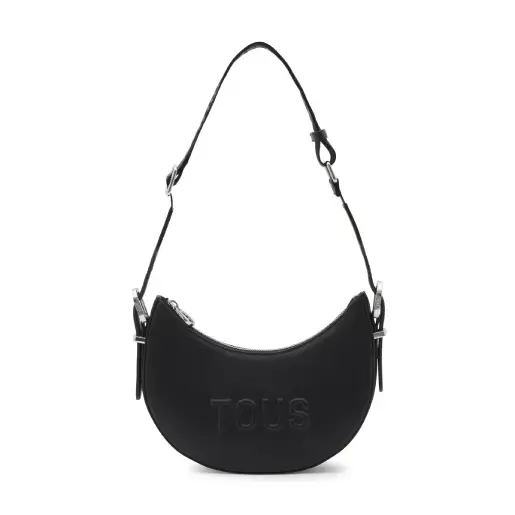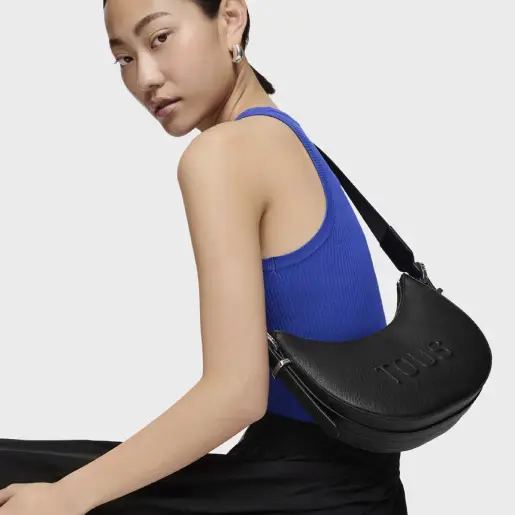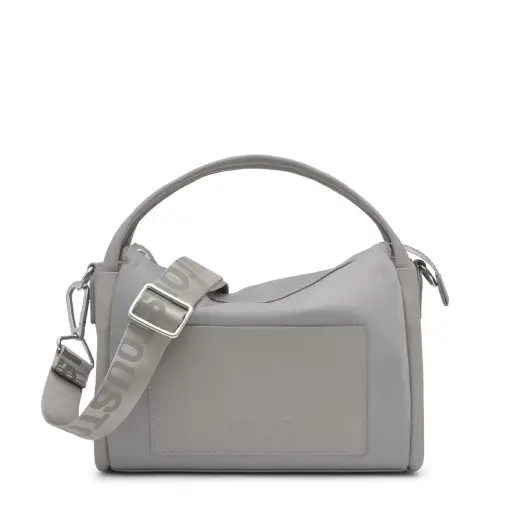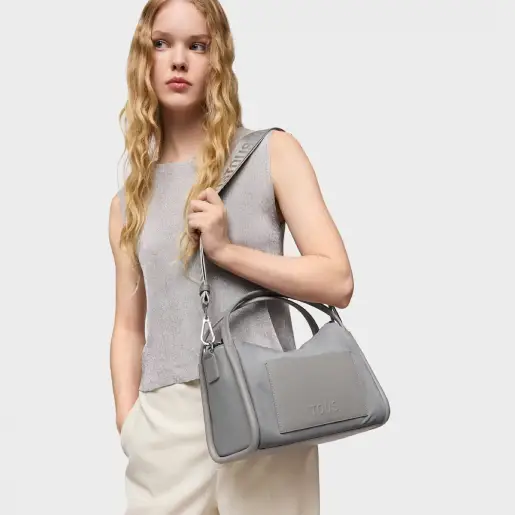As such, deciding between the two comes down to personal preference rather than a universal choice. To help you make your pick, this post will explore the key differences between crossbody and shoulder bags, their unique sets of benefits, and which one will suit your lifestyle better.
What is a shoulder bag?
A shoulder bag is designed to be carried on one shoulder. It usually has a single strap that rests on the shoulder, allowing the bag to hang down the side of your body. Shoulder bags come in various sizes and styles, ranging from small, sleek designs to larger, more functional ones. They are often chosen for their ease of access and elegant appearance.
Pros of shoulder bags
- Easy access: One of the biggest advantages of shoulder bags is the ease of access. Since the bag hangs by your side, you can quickly reach in and grab what you need without having to remove the bag.
- Stylish: Shoulder bags are known for their classic and sophisticated look. They can effortlessly complement both casual and formal outfits.
- Variety: There is an extensive range of shoulder bags available in the market, giving you plenty of options to choose from based on your style and needs.
What is a crossbody bag?
A crossbody bag is designed with a long strap that crosses over your body, with the bag resting on the opposite hip. This design allows you to go hands free and is known for its practicality and security. Crossbody bags are popular among frequent travelers and busy individuals who need to keep their hands free while ensuring their belongings are safe.
Pros of crossbody bags
- Comfort: The design of a crossbody bag distributes the weight evenly across your body, reducing the strain on your shoulders and back. This makes them a great option for carrying heavier loads over longer periods.
- Security: Crossbody bags are less likely to be stolen since they are worn across the body, making it difficult for someone to snatch them away.
- Convenience: With a crossbody bag, your hands are free to engage in other activities, whether it’s shopping, holding a coffee, or using your phone.
Differences between crossbody and shoulder bags
When comparing shoulder bags and crossbody bags, several factors come into play. Shoulder bags are typically seen as more stylish and are ideal for formal occasions, offering a sophisticated look that pairs well with professional attire. In contrast, crossbody bags have a more casual and practical appearance, making them perfect for everyday use and travel, although they might not be the best choice for formal events.
Comfort and practicality also differ between the two styles. Shoulder bags can be comfortable for short periods but may cause strain if worn for long durations, especially when heavily loaded. Crossbody bags, on the other hand, distribute weight better, making them more comfortable for extended use and providing a hands-free experience, enhancing their practicality.
When it comes to security, shoulder bags can be more vulnerable to theft, especially in crowded places, due to their loose hanging design. Crossbody bags offer better security since they are worn across the body, making them harder to steal. Accessibility is another consideration: shoulder bags allow for quick and easy access to your belongings without needing to remove the bag, while crossbody bags offer secure storage but may require a bit more effort to access items quickly.
Are crossbody bags better for shoulders?
In terms of design, crossbody bags are often gentler on the shoulders than shoulder bags. The even weight distribution across the body reduces strain on any single shoulder, which can be especially helpful if you carry heavier items or wear the bag for long periods. However, this doesn’t mean shoulder bags are entirely out of the question. For those who value style and easy access, shoulder bags can still be a great choice, as long as the load is manageable and not too heavy.
Summary: which one is right for you?
Choosing between a shoulder bag and a crossbody bag ultimately depends on your lifestyle, needs, and personal preference. Here are a few questions to help you decide:
- How often do you carry heavy items? If you frequently carry heavy items, a crossbody bag might be the better option for its weight distribution and comfort. Consider this uber stylish medium beige shopping bag, which is roomy enough to pack all your essentials while looking chic and put together.
- What is your primary use for the bag? For formal events and professional settings, a shoulder bag, like this navy blue one from Tous, will offer the sophistication you need. For casual outings and travel, a crossbody bag, such as this zip-up reporter bag in a bold red, provides practicality and security.
- How important is quick access to your belongings? If you need to access your items frequently and quickly, a shoulder bag might be more convenient. For instance, this medium black Empire soft city bag from Tous is an ideal choice for running errands that require quick access to your keys, purse, and travel passes.



